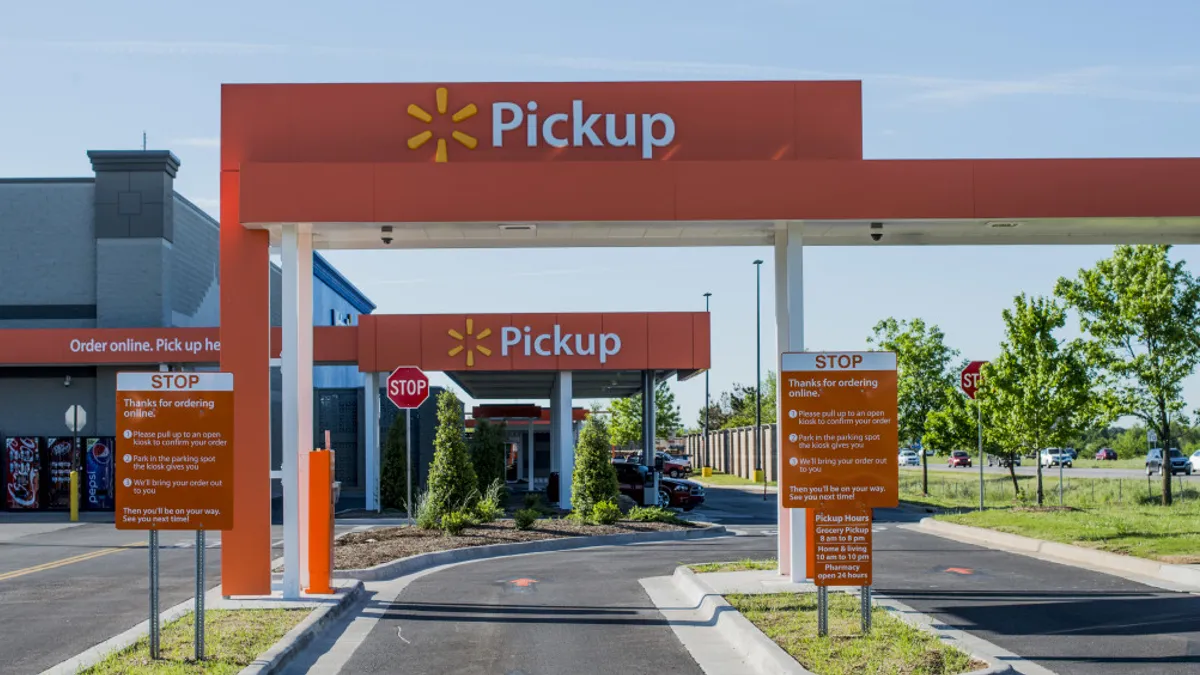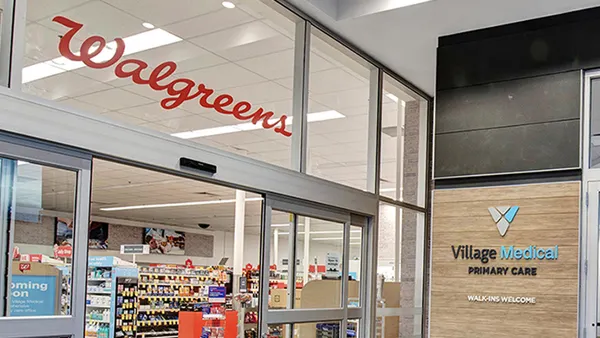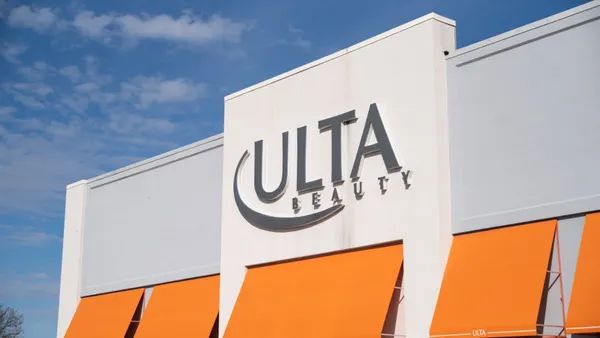Dive Brief:
-
Walmart on Tuesday reported its best U.S. comp sales growth in nine years on a two-year stack of 6.8% growth. U.S. comp sales rose 4.2% in the fourth quarter from the year-ago period's 2.6% rise, according to a company press release.
-
Total Walmart revenue in the quarter rose 1.9% to $138.8 billion. Sam's Club comp sales rose 3.3% in the quarter, while e-commerce sales rose 21%. For the year, total revenue rose 2.8% to $514.4 billion.
-
Walmart e-commerce sales in the quarter grew 43%, just ahead of the 40% year-over-year growth. The company also reiterated the guidance it gave during its investors meeting in October regarding fiscal 2020. The company anticipates comp sales growth of 2.5% to 3%, around 1% at Sam's Club, and e-commerce growth of about 35% at Walmart U.S.
Dive Insight:
Despite worrying holiday metrics recently reported by the Census Bureau, Walmart didn't have a problem driving customers to its stores or website. CEO Doug McMillon said the company's positive report is thanks in part to a favorable economic environment, as well as accelerated growth in a number of initiatives. E-commerce, for example, benefited from the expansion of its grocery pickup and delivery efforts as well as a broader online assortment, the company said.
The "blowout" earning report is thanks to a number of investments that are beginning to bear fruit, especially in grocery, Charlie O'Shea, Moody's Lead Walmart Analyst, said in a statement emailed to Retail Dive. "Food continues to play a critical role, and Walmart is upping the ante with its investments in this category, putting additional pressure on the entire category," O'Shea said, adding that he anticipates 2019 will be a year of muscle flexing across multiple categories.
Many analysts are encouraged by Walmart's growth online, which signals it may have enough competitive strength to compete against Amazon.
"Walmart has been successfully executing its online-forward strategy, laying down aggressive e-commerce growth targets and making some savvy geographic expansions and acquisitions across key verticals, like specialty apparel and grocery," Michael Lagoni, CEO of retail intelligence firm Stackline, said in comments emailed to Retail Dive.
Last year, the company continued to grow its portfolio of digitally native brands — like Eloquii and owned brand Allswell — as well as category experts like Bare Necessities. It also made its largest deal ever, shelling out $16 billion for Indian e-commerce company Flipkart. That strategy shows that Walmart is on the lookout for brands that may play well within its ecosystem, especially ones that will bring in new customers. Through its recent Jet.com website refresh, Walmart has zeroed in on wealthy, urban millennials. It's not clear whether that message is resonating, but it does show that Walmart is bulking up to compete on Amazon's turf.














